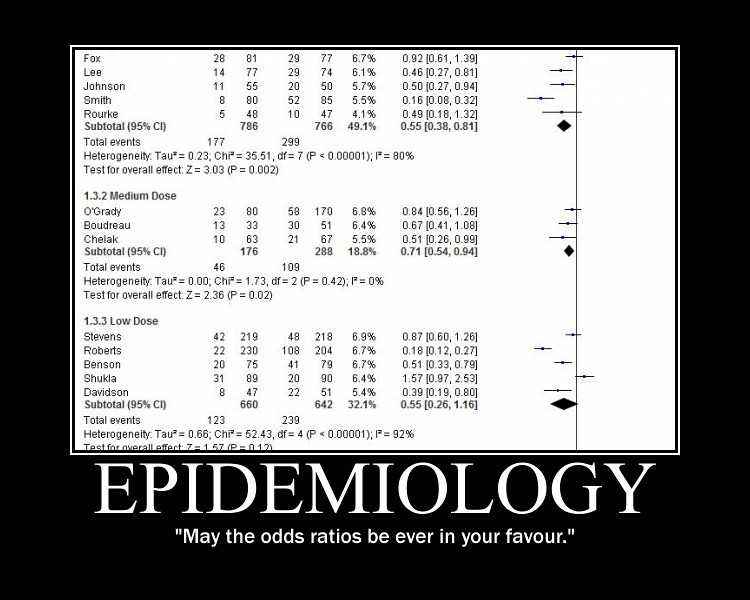The Comprehensive Guide to Understanding Epidemiology and Its Significance
Introduction
In this comprehensive guide, we delve into the fascinating field of epidemiology. Exploring its fundamental concepts, methodologies, and its immense significance in understanding and combating public health issues.
Epidemiology is a branch of medical science that deals with the distribution, causes, and prevention of diseases in populations. By analyzing patterns, risk factors, and outcomes, epidemiologists play. A crucial role in unraveling the mysteries behind various health conditions. Join us as we explore the depths of this captivating field.
Understanding Epidemiology
Epidemiology, derived from the Greek words “epi” meaning “upon” or “among” and “demos”. Meaning “people,” is the study of how diseases are distributed and occur within populations. It aims to identify patterns, risk factors, and the causes behind the occurrence and spread of diseases.
Epidemiologists investigate various factors, such as demographic characteristics, environmental exposures, lifestyle choices. And genetic predispositions, to gain insights into the development and progression of diseases.
Key Concepts in Epidemiology

Disease Distribution
Epidemiologists examine the distribution of diseases by analyzing their occurrence in different populations and geographical regions. This analysis helps identify clusters, trends, and variations in disease prevalence, incidence, and mortality rates.
By understanding the patterns, researchers can develop targeted interventions and prevention strategies.
Risk Factors
Identifying risk factors is a crucial aspect of epidemiological research. Risk factors are traits or circumstances that raise the possibility of contracting a disease. Through meticulous investigation and analysis, epidemiologists determine.
The relative contributions of various risk factors to disease development. This knowledge empowers public health officials to design effective preventive measures.
Study Designs
Epidemiological studies employ different designs to investigate the association between risk factors and diseases. Common study designs include observational studies (cohort, case-control, and cross-sectional) and experimental studies (clinical trials).
Each design has its strengths and limitations, enabling researchers to gather valuable data for analyzing disease patterns and causality.
Measures of Association
To quantify the relationship between risk factors and diseases, epidemiologists employ measures of association. These statistical measures include relative risk, odds ratio, and hazard ratio.
By calculating these measures, researchers can assess the strength and direction of the association. Aiding in understanding the impact of specific risk factors on disease occurrence.
Outbreak Investigation
Epidemiologists play a pivotal role in investigating disease outbreaks. When a sudden increase in disease occurrence is observed. Epidemiologists swiftly mobilize to identify the source, mode of transmission, and potential risk factors.
Through contact tracing and case-control studies, they gather essential data. To guide public health responses and prevent further spread.
Also Read : https://newsstories.in/la-fitness-your-path-to-a-healthy-lifestyle/
Significance of Epidemiology

Epidemiology serves as the cornerstone of public health. Its importance is derived from its capacity to.
Identify Health Disparities
By analyzing disease distribution across different populations, epidemiology uncovers health disparities. These disparities highlight inequities in access to healthcare, socioeconomic factors, and environmental conditions.
Such insights enable policymakers and healthcare professionals. To address these disparities and strive for more equitable health outcomes.
Inform Public Health Policies
Epidemiological research generates crucial evidence that informs the development of public health policies and interventions. Through rigorous studies, epidemiologists provide valuable insights into risk factors.
Disease transmission dynamics, and the effectiveness of preventive measures. This knowledge guides policymakers in implementing evidence-based strategies to safeguard population health.
Prevent Disease Outbreaks
Early detection and prevention of disease outbreaks are key goals of epidemiology. By monitoring disease patterns, conducting surveillance, and identifying emerging threats. Epidemiologists play a crucial role in preventing the spread of diseases.
Their work contributes to timely interventions, vaccination campaigns. And the implementation of public health measures to control outbreaks effectively.
Improve Health Services
Epidemiological studies also contribute to improving healthcare services. By analyzing disease burden, treatment outcomes, and healthcare utilization. Epidemiologists identify areas for improvement within healthcare systems.
These insights help in resource allocation, optimizing service delivery, and enhancing overall healthcare quality.
Conclusion

Epidemiology is a vital field that enables us to understand the distribution, causes, and prevention of diseases. By uncovering patterns, risk factors, and outcomes. Epidemiologists provide critical insights that drive public health initiatives, policies, and interventions.
This comprehensive guide has explored the fundamental concepts of epidemiology and highlighted. Its immense significance in safeguarding population health. By embracing the power of epidemiology, we can strive towards a healthier and more equitable future for all.
Image credit to Flicker.com
<< Previous Post
https://newsstories.in/unleashing-the-power-of-24-hour-fitness-your-ultimate-guide/
>> Next Post
https://newsstories.in/burpees-exercise-a-comprehensive-guide-to-boost-your-fitness/




